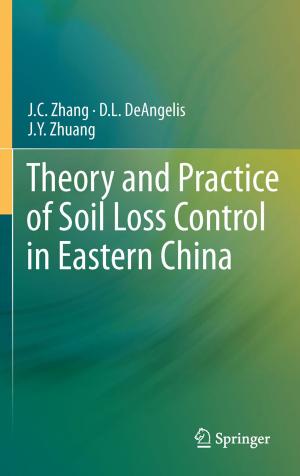Medicinal Plant Biodiversity of Lesser Himalayas-Pakistan
Nonfiction, Science & Nature, Science, Biological Sciences, Biochemistry, Botany| Author: | Arshad Mehmood Abbasi, Mir Ajab Khan, Mushtaq Ahmad, Muhammad Zafar | ISBN: | 9781461415756 |
| Publisher: | Springer New York | Publication: | December 16, 2011 |
| Imprint: | Springer | Language: | English |
| Author: | Arshad Mehmood Abbasi, Mir Ajab Khan, Mushtaq Ahmad, Muhammad Zafar |
| ISBN: | 9781461415756 |
| Publisher: | Springer New York |
| Publication: | December 16, 2011 |
| Imprint: | Springer |
| Language: | English |
The Himalayan region is among the largest mountains systems of the world with uncounted unique medicinal plants resources. The lesser Himalayas ranges are the extension of Greater Himalayas. They have unique ecology, vegetation and diversity of medicinal flora due to tremendous variation in the altitude, climate and associated wildlife.
The utilization of medicinal plants in medicine suffers from the fact that although plants are used to treat diseases, scientific evidence is lacking in many cases. Different societies of the world use the plants according to their own beliefs and knowledge and previous experiences. Their knowledge about the use of the plants is usually not known to the other world or science. This book provides a brief introduction of Lesser Himalayas, ethnobotanical aspects, marketing and anthropogenic pressure on medicinal flora. It comprises one hundred medicinal plant species including Pteridophytes, Gymnosperms and Angiosperms (Monocots and Dicots) along with their scientific description and traditional uses.
The Himalayan region is among the largest mountains systems of the world with uncounted unique medicinal plants resources. The lesser Himalayas ranges are the extension of Greater Himalayas. They have unique ecology, vegetation and diversity of medicinal flora due to tremendous variation in the altitude, climate and associated wildlife.
The utilization of medicinal plants in medicine suffers from the fact that although plants are used to treat diseases, scientific evidence is lacking in many cases. Different societies of the world use the plants according to their own beliefs and knowledge and previous experiences. Their knowledge about the use of the plants is usually not known to the other world or science. This book provides a brief introduction of Lesser Himalayas, ethnobotanical aspects, marketing and anthropogenic pressure on medicinal flora. It comprises one hundred medicinal plant species including Pteridophytes, Gymnosperms and Angiosperms (Monocots and Dicots) along with their scientific description and traditional uses.















